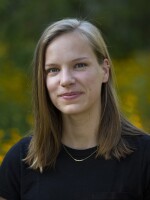STEVE INSKEEP, HOST:
Many teachers worry about students using ChatGPT. That's an artificial intelligence program. If you haven't heard, it's a chat bot that can easily write students' homework for them. But one college student is developing a tool for teachers to detect AI-generated essays. Emma Peaslee and Greg Rosalsky of NPR's Planet Money bring us the story.
GREG ROSALSKY, BYLINE: While many college kids were having fun on winter break, 22-year-old Edward Tian was feverishly working on a new app.
EDWARD TIAN: I think we're absolutely at, like, an inflection point. This technology is incredible. And I do believe it is, like, the future. But at the same time, we needed safeguards to basically adopt it responsibly.
EMMA PEASLEE, BYLINE: Because ChatGPT is more user-friendly than past AI systems and it's free, it's been able to break through in a way that other AI systems haven't been able to.
TIAN: Everybody was talking about ChatGPT on campus. So there was a sense of like, oh, wow, this is everywhere.
PEASLEE: And students kind of immediately realized, this thing can do a lot of homework for us.
ROSALSKY: So yeah, the fall semester ends. And Edward travels home to Toronto for the holidays. But he couldn't stop thinking about this crazy new technology.
PEASLEE: A crazy new technology that could make it hard to figure out whether something has been written by a human or not. And Edward thinks this is a problem not just for, like, kids copying and pasting their homework, but also things like propaganda generated by nefarious actors.
TIAN: Humans deserve to know when something is written by a human or written by a machine.
PEASLEE: So on holiday break, Edward decides to create an app to try and address that.
TIAN: So I was like, wow, why don't I just code this out so the world can actually use it?
PEASLEE: On January 2, Edward released his app. He named it GPTZero. The app basically uses ChatGPT against itself. So when GPTZero analyzes a text, it can scan to see if it recognizes any of the same patterns that ChatGPT would generate.
TIAN: So we're basically taking one of these text generation models and asking it, hey, is this new piece of text, does it seem, like, pretty familiar to you? Like, would you probably generate it yourself?
PEASLEE: When Edward went to bed that night, he didn't expect much from the app. But the next morning, his phone had blown up. He had so many texts and DMs from journalists, principals, teachers, you name it.
ROSALSKY: Before all this, Edward's biggest plans were graduating from college and getting his wisdom teeth pulled. Now he's fielding calls from venture capital firms, education leaders and global media outlets.
PEASLEE: But not everyone thinks ChatGPT is a problem. Some prominent techies are even celebrating it as the end of homework. And a lot of this talk is probably hype. But it really does feel like we've entered a new world where we're being forced to reevaluate our education system and even the value of teaching kids how to write.
ROSALSKY: Edward says the excitement and the clear demand for his new app have convinced him that he should concentrate on making it better and more accurate.
TIAN: Top priority is building this out into something that teachers can use, like, day to day in their workflow. So if you're a teacher or an educator, I'd love to talk to you. Our team, which is, right now, just me and my best friend from college, who just joined, would love to talk to you.
ROSALSKY: Greg Rosalsky.
PEASLEE: Emma Peaslee, NPR News.
(SOUNDBITE OF MC BAPTISTE'S "MARILYN") Transcript provided by NPR, Copyright NPR.



